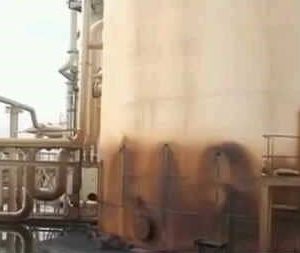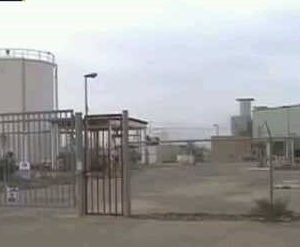On January 4th and 5th, US-led Coalition warplanes-likely shelled Al Omar Field with many air strikes and resulted in considerable damage that led to power failure to many areas in the eastern countryside of Deir Ezzor.
These air strikes came in the context of US-led coalition attempts to disrupt the economic resources of Islamic State group as it was distributing electricity from the field to the civilians in exchange of monthly bills.
a photo of Al Omar Field in November 28th 2013, source is Al Jazeera channel
It should be noted that this is not the first time that the field is targeted, which remained under control of the Syrian government forces even after armed factions captured most of the eastern countryside of Deir Ezzor until the end of 2013. Then, the armed factions under the leadership of the “Central Shareea Commission in the Eastern Areas” controlled the field until Islamic State captured the province in 2014.
A former member of Al Mayadin Local Council confirmed to JFL reporter that “the electricity generating station in Al Omar field consists of five gas turbines, and in 2013 only two turbines was operating, one with a complete capacity, and one with partial capacity”.
a photo of Al Omar Field in November 28th 2013, source is Al Jazeera channel
He added “the local council could not conduct the maintenance for the turbines due to the high price of the required spare parts and the difficulty to purchase them due to economic sanctions that are imposed on Syria”.
Obviously targeting Al Omar field means power failure to water pumping stations and hospitals in the areas that are supplied by the field. After targeting the bridges, the bombing of vital locations still continues in Deir Ezzor.
In this context, all parties, notably the US-led coalition, reject to respond to the frequent appeals for not to target these locations as JFL has demanded, and still demanding, the US-led coalition, the Syrian government, and its allies to stop targeting the vital locations, regardless of the reasons, due to the negative impact on the civilians.













